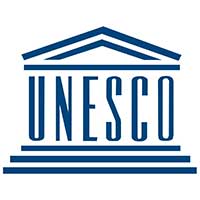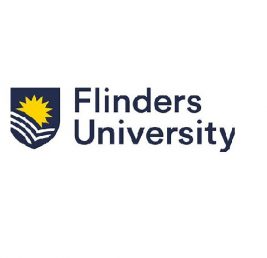
UNESCO International Fund for Cultural Diversity (IFCD)-Call for Applications for 100,000 USD Fund
Call for Proposal Grant / Award in Art and Humanities , in Business and Law , in Culture , in Different Fields , in Social Science ShortlistOpportunity Details
-
Opportunity ID 13447
-
Degree Non Degree Program/Certificate
-
Language Requirement Not Required
-
Fields of study Development
-
Opportunity Type : Partially Funded
-
Duration 12 to 24 months
-
Gender MaleFemale
-
Language of Instruction EnglishFrench
Opportunity Description
UNESCO International Fund for Cultural Diversity 2024 accepts applications through an open and competitive process. Projects that can generate concrete results towards developing creative sectors in developing countries are eligible for IFCD. Non-governmental organizations (NGOs), public institutions from eligible countries, and international NGOs registered in countries that are Parties to the 2005 Convention can submit proposals. Remarkably, the project proposals should contribute to the following:
- The implementation and elaboration of strategies and policies that have a straight, structural impact on the production, creation, distribution, and access to a diversity of cultural goods and services
- The capacities strengthening in civil society organizations and public institutions to support viable local cultural industries and markets.
About the IFCD
The IFCD is a multi-donor fund created under the 2005 UNESCO Convention on the Promotion and Protection of Cultural Expression Diversity to assist developing countries in implementing the Convention. The goal is to boost the expansion of active cultural sectors in underdeveloped nations.
Since 2010, UNESCO has invested US$11.5 million through IFCD in more than 152 projects in 71 developing countries. These initiatives have contributed to developing and implementing cultural policies and entrepreneurship, strengthening professional training, supporting access to new markets, and participating and including vulnerable groups in cultural life.
Brief Details of the Call
Application Status: Open
Application Deadline: 14 June 2024 (12:00PM, Paris time)
Project Launch Date: From April 2025
Proposal Submission Language: English or French
Project Implementation Period: 12 to 24 Months
Maximum Prize Amount: 100,000 USD
Eligible Countries: OECD Fund Receiving Countries, including Afghanistan
Amount of UNESCO International Fund for Cultural Diversity
Applicants can request a maximum of US$ 100,000, which is payable in three installments as follows:
- Beginning of the project: 50%
- Mid-way through the project: 30 %
- Completion of the project: 20%
Eligibilities and Requirements
Applicants or candidates who meet the following requirements can apply for the UNESCO International Fund for Cultural Diversity:
- Public institutions and authorities from eligible developing countries, Parties to the 2005 Convention
- NGOs from eligible countries, including developing countries and Parties to the 2005 Convention
- International non-governmental organizations registered in countries Parties to the 2005 Convention.
Project Eligibilities
- The project should focus on introducing or elaborating strategies and policies that directly impact the building, production, distribution, and access to cultural diversity, such as artistic expressions, cultural goods, services, and activities.
- Must positively impact empowering the human and institutions of public sectors, civil society, and non-governmental organizations in developing countries.
Eligible Sector
The seven eligible sectors have transversal (cultural policies or strategies, copyright, etc.)
Or sectoral focus:
- Audio-visual/ Cinema
- Design
- Media Arts
- Music
- Performing arts
- Publishing
- Visual arts
Type of Eligible Projects
Projects by public authorities and institutions must:
-
- Develop decision-making tools, mappings, and sustainable statistical systems.
- Strengthen public cultural agencies and civil servant expertise.
- Establish financing and market development mechanisms for cultural goods.
- Implement international cooperation agreements for cultural exchange.
- Enhance educational institutes in cultural and creative sectors.
- Promote cultural industries in the digital environment.
- Encourage participation in cultural life, especially among vulnerable groups.
- Promote gender equality in cultural and creative sectors.
Projects by non-governmental organizations (NGOs) must:
-
- Strengthen civil society capacities in policy participation and networking.
- Inform policy-making and evaluate cultural policy impacts.
- Enhance educational institutes in cultural and creative sectors.
- Create financing opportunities and access to markets for cultural goods.
- Promote cultural industries in the digital environment.
- Encourage participation in cultural life, especially among vulnerable groups.
- Promote gender equality in the cultural and creative sectors.
Ineligible Projects
These types of projects are not eligible for the 2024 IFCD Fund:
- Projects exclusively producing cultural and artistic works/events
- Projects for safeguarding intangible cultural heritage
- Projects related to tangible cultural heritage/World Heritage sites
- Projects offsetting deficits, repaying debts, or paying interest
- Projects solely funding permanent working spaces/equipment
- Scholarships/grants for personal needs
- Financing physical construction/restoration of buildings
- Focus on primary/secondary school environments
- Sustaining ongoing activities with recurring costs
- Focus on cultural tourism
Eligible Countries
Following is the list of eligible countries that are eligible to apply for the 2024 IFCD Fund:
Required Documents
Application supporting documents are different for each party and organization as follows. Please review the documentation page for details:
Selection Process and Criteria
Following is the highlight of the UNESCO IFCD selection process:
Selection Criteria:
The IFCD team will evaluate applications for funding requests against the following criteria:
- The project aligns with the objectives of the 2005 Convention and the IFCD.
- Aim for concrete, measurable, and sustainable outcomes.
- Addresses state-specific needs and priorities, ensuring feasibility and relevance.
- Aims for a significant impact on the cultural sector’s development.
- Encourages cooperation between South-South and North-South-South partners, focusing on UNESCO priorities.
- Focuses on long-term benefits and sustainability.
- Demonstrates financial accountability.
- Evaluates key personnel skills and stakeholder involvement.
- Ensures overhead costs stay below 30% of the total budget.
- Prioritizes funds for project activities.
- It avoids spreading resources thinly and supports consistent activities.
- Encourages additional financial assistance for broader engagement and project sustainability.
How to Apply?
To apply for the UNESCO International Fund for Cultural Diversity 2024, applicants should follow these guidelines:
- Apply before the above deadline, as applications submitted after the deadline won’t be considered.
- Prepare the application materials.
- Review the “Call for Funding” document for further details.
- Register to create your account using the link below.
- Access your account using the provided guide and download the “Project Framework.”
- Study the “Annotated Guide” thoroughly.
- Collect necessary supplementary documents.
- Complete the “Project Framework” document.
- Fill out the online application form.
- Upload the completed “Project Framework” and supplementary documents.
- Date, sign, select, and submit your application.
Register Now
Read the complete details on the IFCD Call or visit the UNESCO Website for more information. Applicants can also contact the 2005 Convention UNESCO Secretariat at convention2005.ifcd@unesco.org for any questions.
Check More Opportunities:
TWAS Research Grants Programme in Basic Sciences for Individual Scientists (USD30,000)
Earth Journalism Biodiversity Media Grants 2024 for Organizations (EUR 12,000)
Mama Cash Grant 2024 for Self-Led Feminist Organizations
ICIMOD SANDEE Research Grants for South Asian Researchers ($30,000)
2024 Türkiye Scholarships Summer Research Program [Fully funded]

